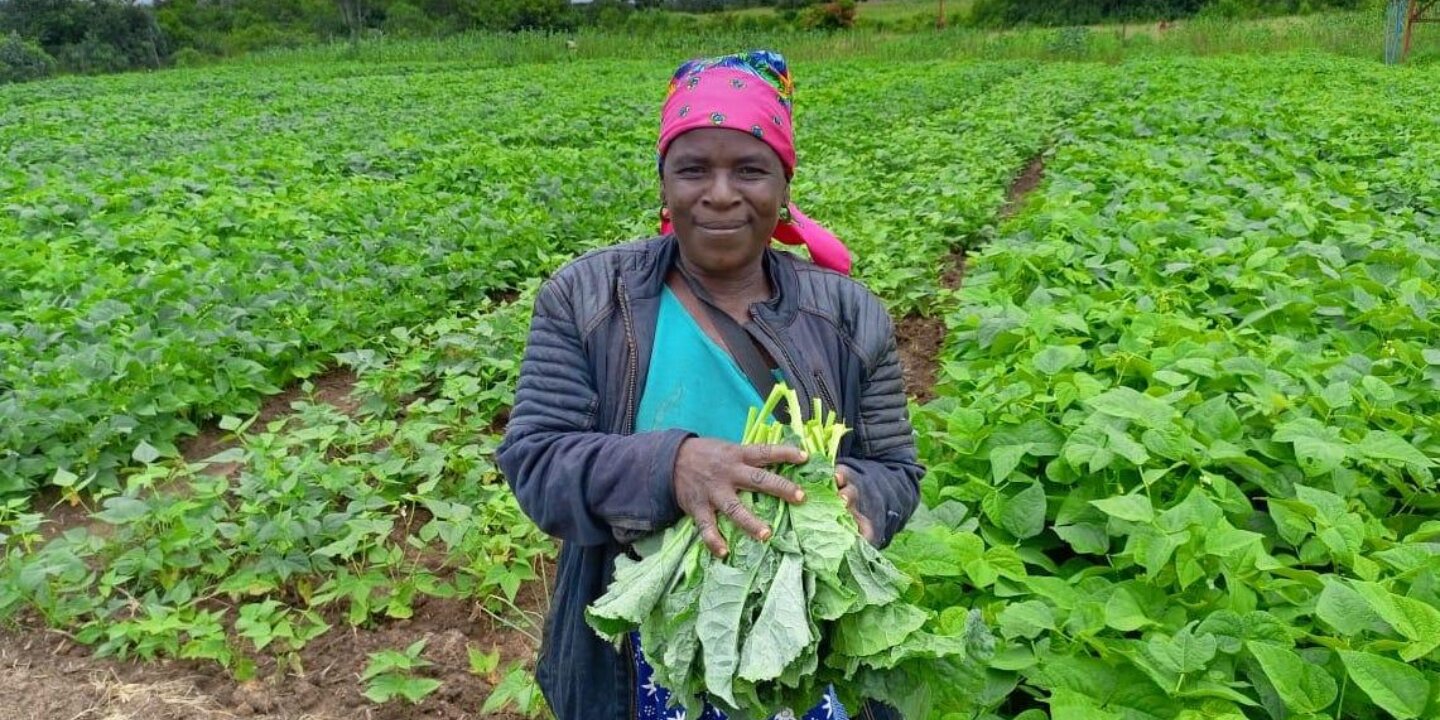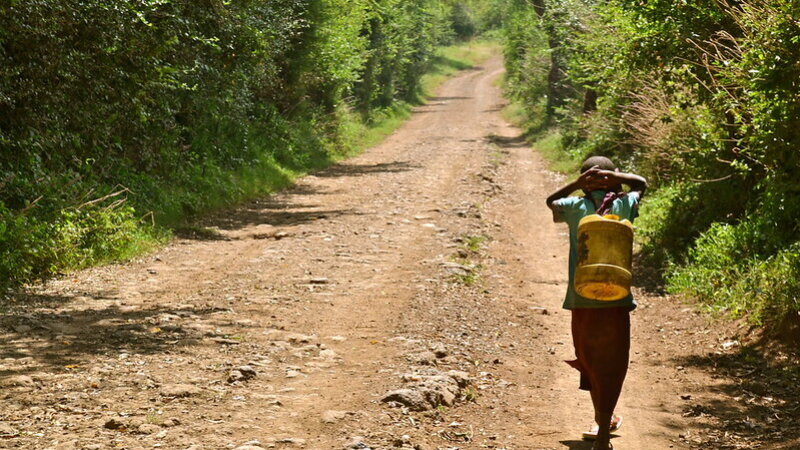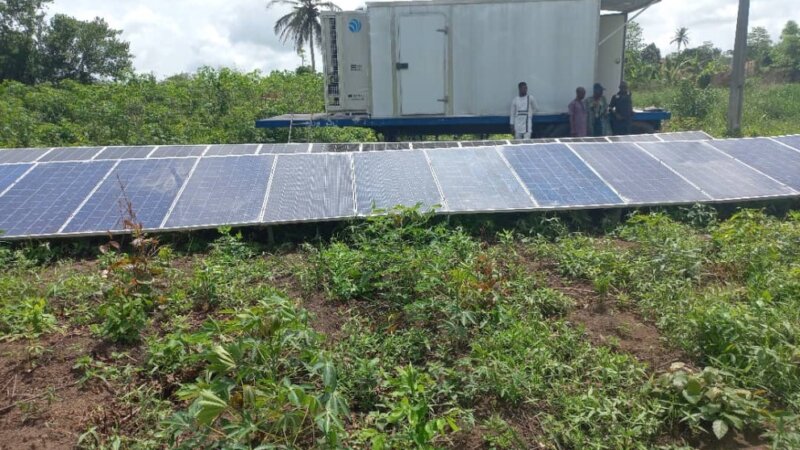A gendered power shift for just and equitable food systems

Garisikai Mukwachure is a communal farmer in Zimbabwe. Smallholder farmers have limited access to land, water, and reliable markets.
Roselilly Ushewokunze works at Food Justice Network, Zimbabwe, as Coordinator. She is participant of the 2024 food systems e-course. In this blog, she wrote about how power disparity is slowing down acceleration of food systems transformation and what needs to be done.
Climate change coupled with the ballooning global population is straining our food systems. The current food systems are consumptive and also rely heavily on the use of pesticides and chemical fertilizers. This contributes to global greenhouse gas emission and is a threat to biodiversity. At the core of frangible food systems are power disparities among different actors in the food value chain. Food systems actors hold different levels of power and there is a need for a power shift from the monopolistic lens to inclusive and equitable narratives. Inequalities in food systems exacerbate social, economic and gender inequalities.
In my tenure as the coordinator of the Food Justice Network in Zimbabwe, I have noted food production was the domain of many producers and consumers. In due course, the industrial agribusinesses have gained prominence along the value chain. Agribusinesses control food systems: from seed to production, processing, and distribution, as well as to influencing consumption patterns. They enjoy monopoly, choosing maximization of profit over sustainable and human centric approaches. And this happens with the support of government policies, like the Zimbabwe Seed Act. The Act excludes indigenous seeds from the formal seed system in favour of patented seeds churned out by seed companies. Furthermore, the act sets out certification requirements that are not accessible to smallholder farmers. The farmers contribute about 70% of the food produced yet they remain at the periphery of the food system discourse.
Garisikai Mukwachure (pictured above) is one of 170000 communal farmers in Zimbabwe. Yet, her role and that of other women is relegated to unpaid work in the field. Her hard work is not recognized in resource allocation and decision making. Patriarchy is rife and the norm among the rural population in Chipinge, Eastern Highlands. Women like Garisikai are primary producers of food. But they have limited access to land, water and reliable markets. Aptly put, these are actors that produce food for sustenance. Conversely, they are the most affected by food insecurity. During food shocks and other disasters, pregnant women and lactating mothers bear the brutal impacts of food insecurity. Women farmers in Chipinge are yet to recover from the aftermath of Cyclone Idai where 634 people lost their lives and 257 people remain unaccounted for.
These challenges prompted me to enroll for the food systems e-course. My main aim was to understand how food systems can be more inclusive. Food systems intersect with a number of other critical issues for women that include health, environment, economics and social and cultural aspects. How can we build synergies and reduce trade–offs when transforming food systems? Synergies are the positive interactions among food systems components such as improved nutrition, food sovereignty, food waste reduction and biodiversity. On the other hand, trade-offs are the negative outcomes brought by pursuing one outcome whilst compromising the other. For example, choosing to intensify food security over environmental sustainability. Women like Garisikai can benefit more from a system that promotes more synergies and reduces trade-offs.
I believe that just and equitable food systems are possible through power shift. An inclusive gendered lens is critical in addressing disparities in food systems. A human centric approach that considers the role of small actors which many women find themselves in such as subsistence farmers, low level entrepreneurs and low-income consumers is critical for the transformation.
Shifting power is possible through meaningful inclusion and participation of women in decision making. Going further, we will focus on pushing for amendment of policies like the Zimbabwe Seed Act. Inclusive policies on agroecology, land, water and disaster risk management can also enhance the power shift.
Author

Roselilly Nokhutula Ushewokunze
e-course participant





